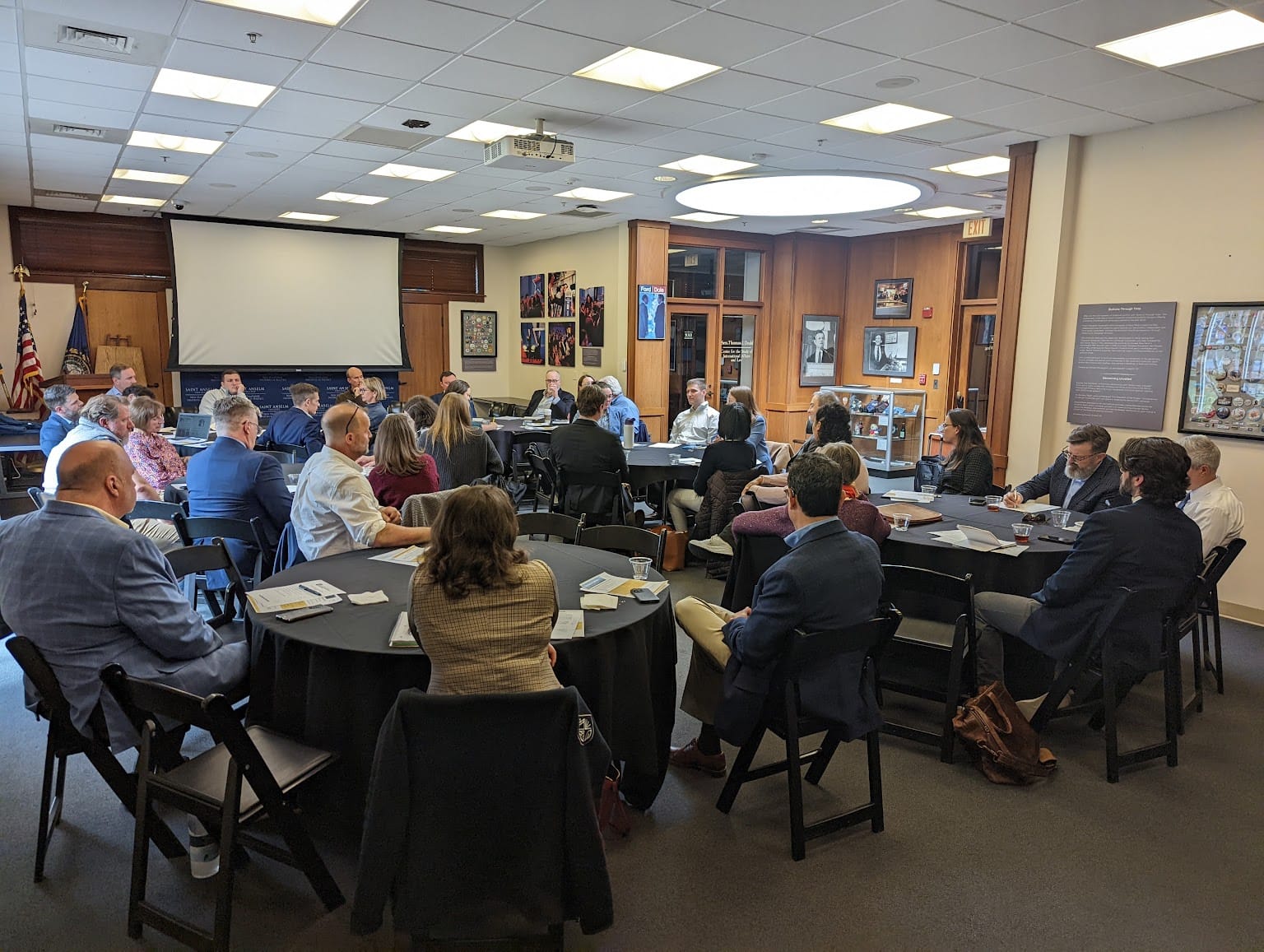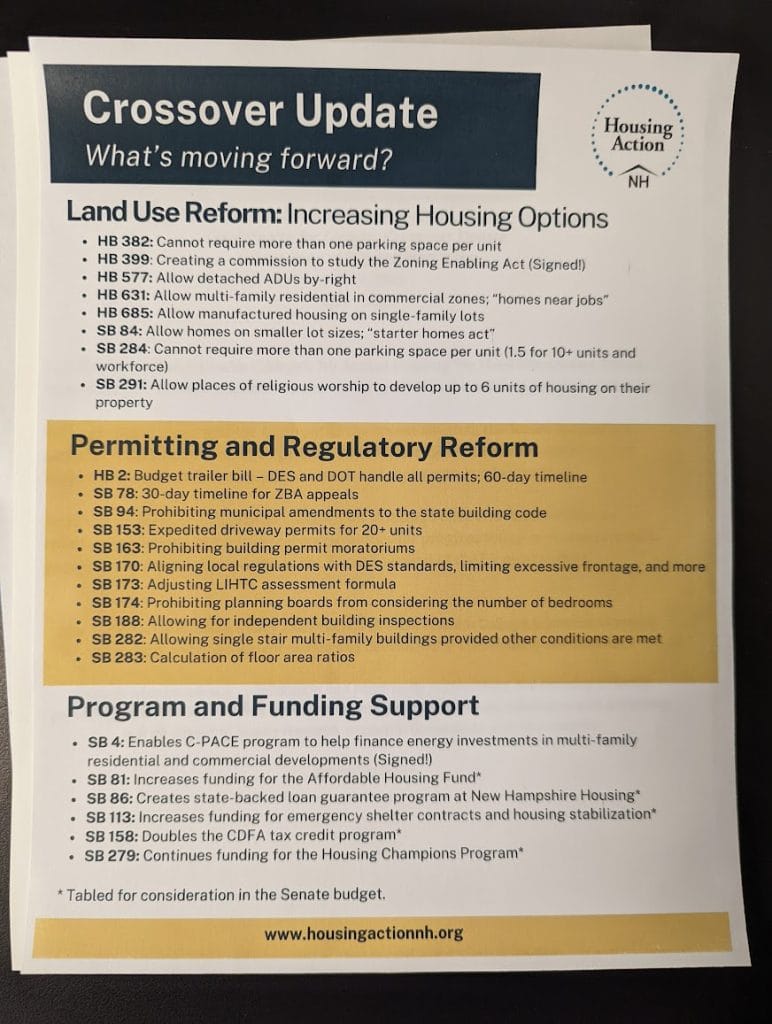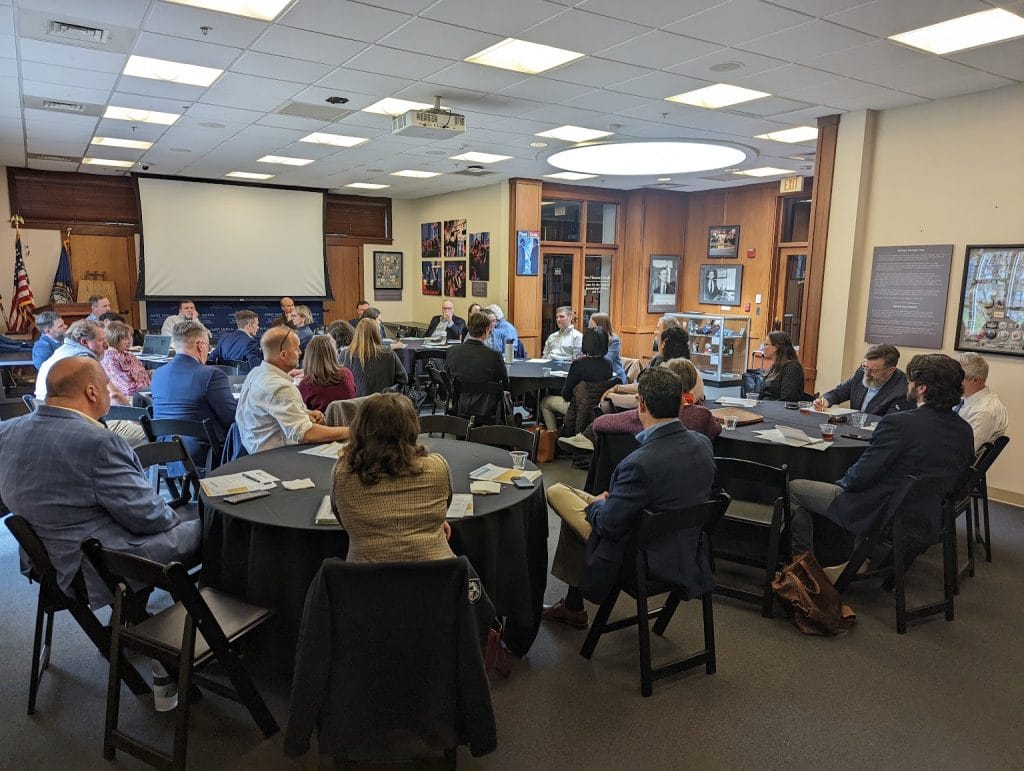Saint Anselm roundtable discusses pending legislation addressing New Hampshire’s housing crisis
As policymakers in Concord propose solutions to New Hampshire’s housing crisis, housing supply advocates gathered at the New Hampshire Institute of Politics to discuss ways to better advocate for laws that help create affordable homes for Granite Staters.

GOFFSTOWN, N.H. – As policymakers in Concord propose solutions to New Hampshire’s housing crisis, housing supply advocates gathered at the New Hampshire Institute of Politics to discuss ways to better advocate for laws that help create affordable homes for Granite Staters.
On Thursday, the Initiative for Housing Policy and Practice at Saint Anselm College and Housing Action NH hosted a roundtable on housing policy, particularly a set of 17 bills before the New Hampshire General Court as legislation moves between chambers soon for Crossover Day, the remnants of almost 60 housing-related bills coming into the year.
During the discussion, it was frequently mentioned that approximately 70 to 80 percent of Granite Staters support policies that increase housing stock, giving this session of the state legislature a bipartisan focus on addressing the problem.
Despite that broad support, there was still concern over some state legislators opposing efforts to address the issue. One of the primary concerns heard is that increasing housing density will impact the rural character of the state’s smaller towns.

For Dr. Max Latona, a professor at Saint Anselm College and one of the key figures behind the New Hampshire Zoning Atlas, that concern is a legitimate one. However, he argues that increased density actually helps preserve rustic communities by reducing sprawl and thus providing the same amount of housing with increased open space to preserve natural and recreational opportunities.
“New Hampshire is a beautiful state, we love the character of our communities and open space is important to preserving that character,” he said. “But sometimes we forget that higher density housing preserves our open spaces.”
Other obstacles included fears of impacts to property values and the removal local government control on land-use issues. Matt Mayberry of the New Hampshire Home Builders Association responded to both claims. First, Mayberry noted that the need for 20,000 additional residential units right now and an estimated 90,000 more by 2030 means that it is unlikely that the state will see a glut of homes driving down prices anytime soon. He also said allowing greater density should not be seen as limiting local elected leaders but empowering property owners to have more control over what they can do with their land.
That second point is a key driver behind SB 84, which Latona believes is probably the most important this year in Concord when it comes to addressing housing affordability given its role regarding allowable housing density. SB 84 proposes that municipalities would have to allow by right any single-family residential use in a lot more than two acres, with that number going down to one acre for lots serviced by municipal water systems and a half-acre for any lots serviced by municipal sewer systems. Ultimately, this change would only impact 84 of New Hampshire’s 234 municipalities, with the rest already holding minimum allowable residential lot sizes below that threshold.
While SB 84 has five Republican sponsors, the bill advanced through the State Senate, 13-10, with the support of six Republicans and seven Democrats.

The need for a variety of housing densities is also a factor in the broad support for accessory dwelling units, or ADUs. Sometimes known as “in-law apartments,” ADUs are smaller and separate residential units on a property containing a larger primary residential unit, usually attached or connected to that primary unit. Supporters of ADUs note that ADUs can serve as low-cost options for seniors and young adults to find more affordable downsized housing solutions.
Legislation around facilitating the creation of ADUs, manufactured home parks and other policies that would create a larger and more affordable housing supply were discussed, with members of the meeting such as Business and Industry Association of New Hampshire President Mike Skelton urging all in attendance to reach out to their legislatures, local media, social media and personal circles to voice their support for housing supply=friendly measures.
Skelton stated that New Hampshire currently has the oldest workforce in the country, and without drastic measures to increase affordability for the next generation of New Hampshire workers, the state’s economy may suffer.
“We need to generate more grassroots support and awareness around this because the pushback is coming pretty hard from the other side,” said Skelton. “We need to create cover for our legislators and for our policy makers to see that the polling data (supporting housing supply-friendly policies) is real.”






